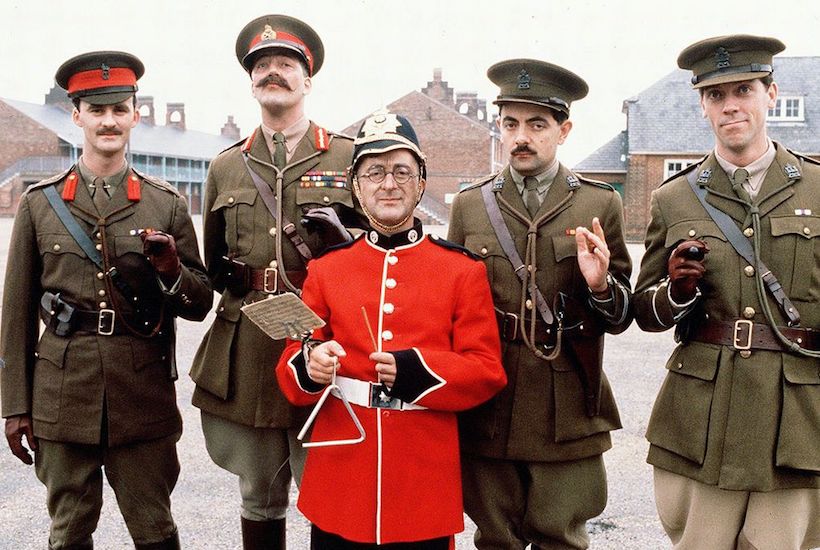Public health Pooh-Bah bullies are at it again. With the Victorian and federal elections heaving into sight, this week a coalition of twenty-four public health and medical organisations, including the Cancer Council Victoria and the Australian Medical Associations, issued a manifesto calling for the virtual elimination of smoking by 2025.
‘Victoria must eliminate the uptake of youth smoking and increase the number of adult smokers’, the do-good manifesto declares. And what does it offer as the wonder weapons to win the war on smoking?
Just these five scathingly brilliant ideas:
- Use TV-led public education campaigns.
- End remaining forms of advertising and promotion of tobacco products.
- Embed smoking cessation into routine healthcare in Victoria.
- Close remaining loopholes in smoke-free legislation.
- Reduce the widespread availability and visibility of tobacco products.
What imagination. What originality. What vision. What tosh.
This magical prescription for victory is simply more of the same of the last four decades. The Pooh-Bah bullies continue to plan their grand strategy with the assumptions that we are gullible saps who are readily persuaded by a telly ad. That simply waving a legislative magic wand will make deadly cigarettes and other combustible tobacco products disappear in a puff of their own smoke. That as legal access to affordable ciggies gets harder because of retail restrictions and eye-watering tobacco excise increases, that hundreds of thousands of Australians are not turning to the ‘chop-chop’ black market.
There is no recognition in this election-motivated manifesto that there are new technological weapons capable of disrupting the traditional cigarette and tobacco market, helping smokers to reduce or quit, and of leading to the sorts of real reductions in the number of lives to smoking the Pooh-Bah bullies dream of but, because of their arrogant bone-headedness, can never achieve.
Vaping with nicotine-containing solutions, as well as heat-not-burn and smokeless tobacco products, have turned the tide in overseas markets. This is notably the case in the UK, EU and US, where until recently smoking rates were stubbornly stuck well above Australia’s. This latest Pooh-Bah bully manifesto defines achieving a five per cent smoking rate in 2025 as being smoke-free. Yet in Sweden, that rate is already a reality because of the extensive take-up of a popular smokeless tobacco product, snus.
In terms of harm reduction vaping, heat-not-burn and snus are embraced overseas and not spurned. Health authorities are willing to give credence to the growing weight of evidence and overseas expert opinion that when it comes to consuming nicotine, each of these product alternatives is safer than combustible tobacco – up to 95 per cent safer according to the UK Royal College of Physicians, the very body that in 1962 blew the whistle on the links between smoking and lung cancer.
In Australia, however, the Pooh-Bah bullies are determined to stick to the same tired formula and Big Tobacco conspiracy theories and refuse to accept any innovation that disrupts their vision and worldview. With blinkered thinking like this, is it any wonder the headline smoking rate in Australia has flatlined for years, while rates in comparable countries like the UK, which accept vaping as a legitimate part of the tobacco harm reduction scene, have plummeted? That sister countries Canada and New Zealand are abandoning their former opposition to legalise and encourage nicotine vaping means nothing here?
In how they wage their war on smoking, the attitude of Australian public health Pooh-Bah bullies is comparable to the attitude of Sir Douglas Haig and the British general staff on the Western Front.
In offensive after offensive hundreds of thousands of British soldiers, including the magnificent lads of the Australian Imperial Force, were sent over the top armed with rifles and bayonets against machine guns, poison gas and barbed wire. Haig’s sticking to the same methods proved time and again to be futile in the face of mechanised killing, wrote the horrific butcher’s bill of killed and wounded in epic battles including Ypres, the Somme and Passchendaele that destroyed the flower of a generation and left homes all over the Empire tragically bereft of husbands, brothers, fathers and sons, not to mention the thousands of men maimed and damaged.
To Haig and like-minded generals, the lives of the individual soldiers they sent to their deaths seemingly mattered little. Believing in their own rightness, they refused to change their strategy of ghastly attrition. It took innovative military thinkers from outside the British establishment, like Australia’s Sir John Monash, to break this mould of futility, and find new ways to win the war without incurring the astronomical casualties that Haig seemingly took for granted. And – lo and behold – Monash and other like-minded, new-generation officers engineered the decisive Western Front breakthroughs of 1918 that broke the Western Front stalemate of four long years and finally ended the war to end all wars.
As with Haig’s stubbornness and lack of imagination sending many, many thousands to oblivion, the resistance to innovation of Australian public health Pooh-Bah bullies risk sending thousands of Australian smokers to needless premature deaths. Their determination to stick to tired, outdated strategies and demonise vaping and other new tobacco harm reduction alternatives is not only unwise, not only foolish but is an abdication of their self-proclaimed duty to improve the health of all Australians. Like Haig in 1917, the Australian public health establishment insists doggedly it is on the right track and will be vindicated in the end. In doing so, however, they prefer to deny evidence of more effective but disruptive ways to achieve everyone’s desired goal, an end to smoking, rather than change their minds.
Referring to Haig and the British general staff, German general Erich Ludendorff is supposed to have remarked that British soldiers were ‘lions led by donkeys’. When it comes to the quality of leadership in the war against smoking in Australia, his comment a century ago has a certain resonance.
Terry Barnes is a fellow of the UK Institute of Economic Affairs, with a special interest in nanny state regulation.
Illustration: BBC Television.
Got something to add? Join the discussion and comment below.
Got something to add? Join the discussion and comment below.
Get 10 issues for just $10
Subscribe to The Spectator Australia today for the next 10 magazine issues, plus full online access, for just $10.

























Comments
Don't miss out
Join the conversation with other Spectator Australia readers. Subscribe to leave a comment.
SUBSCRIBEAlready a subscriber? Log in